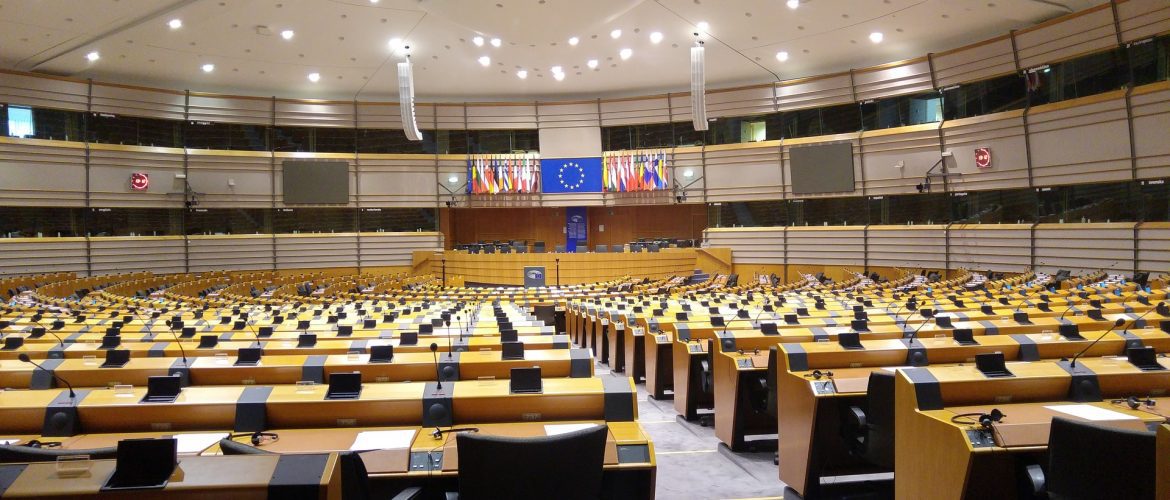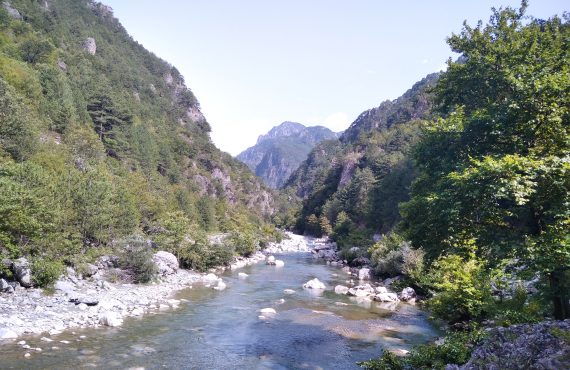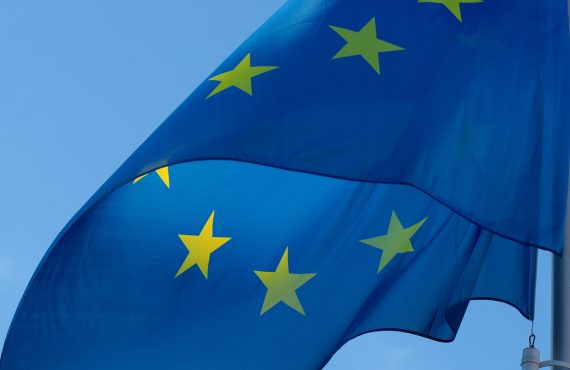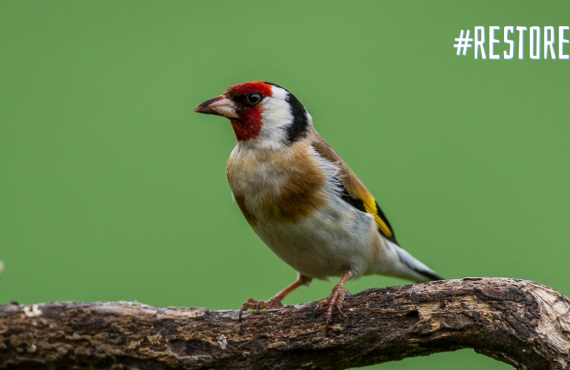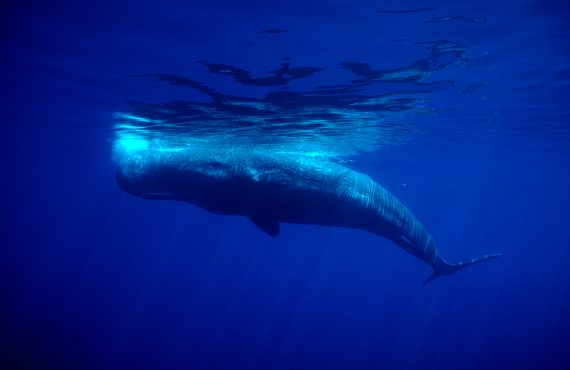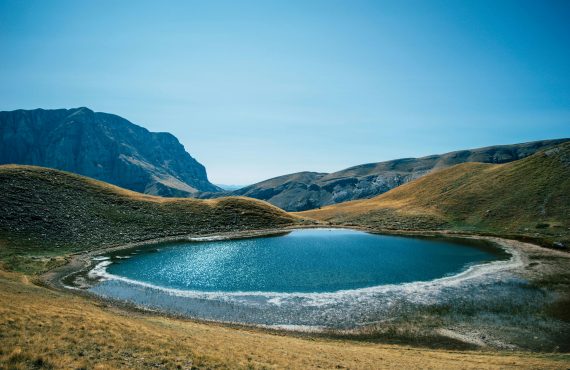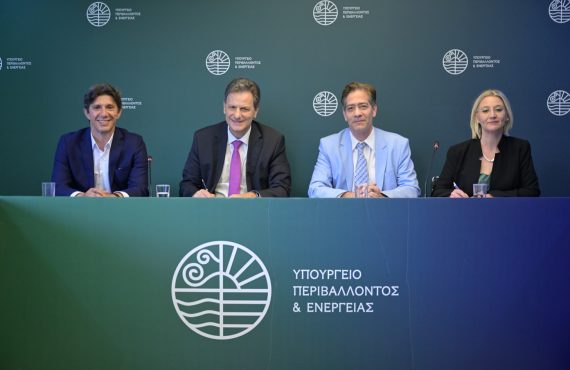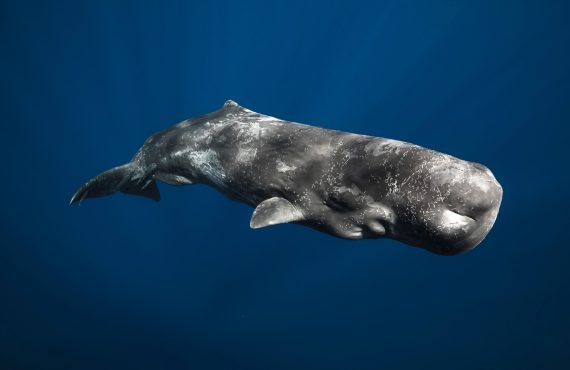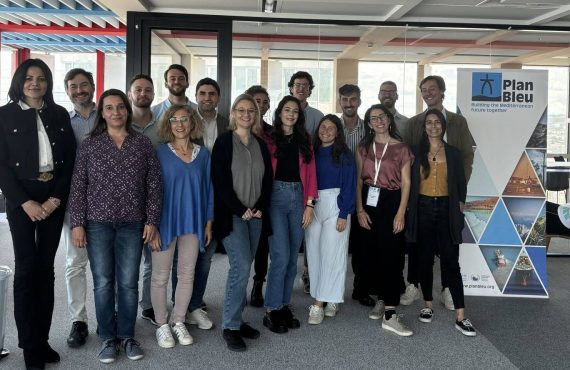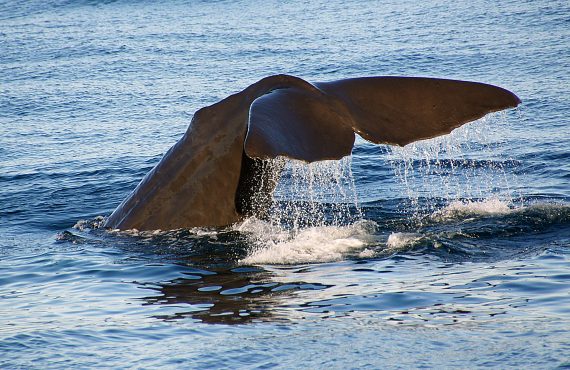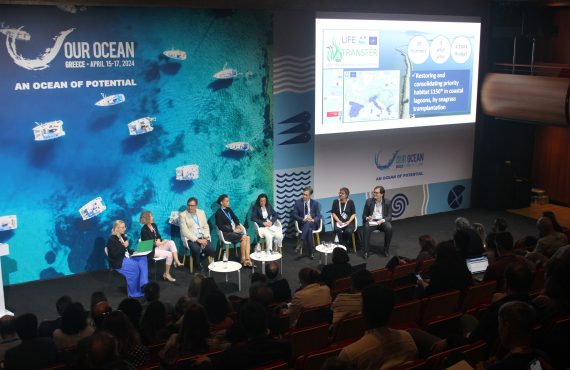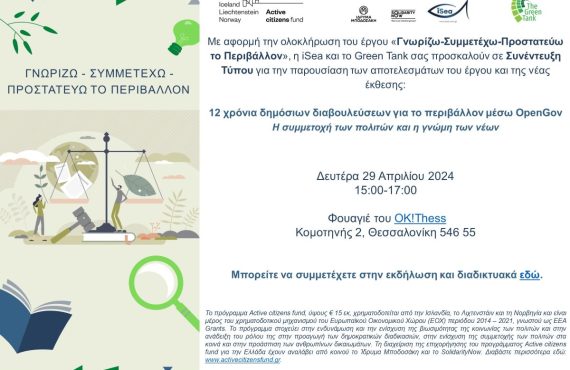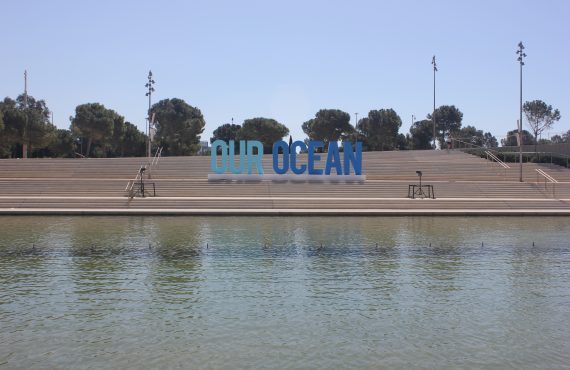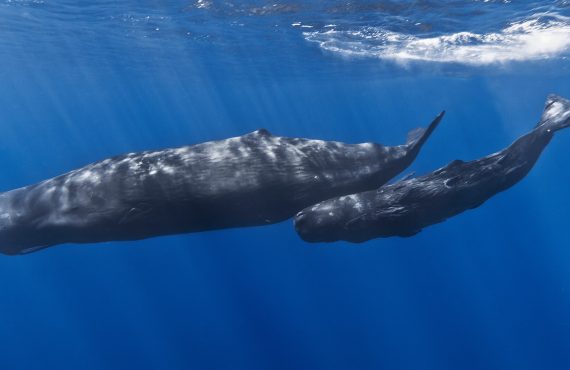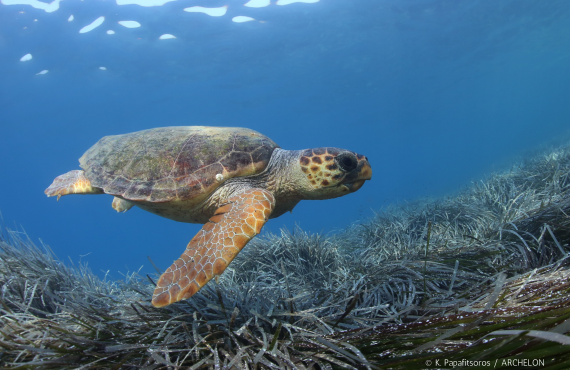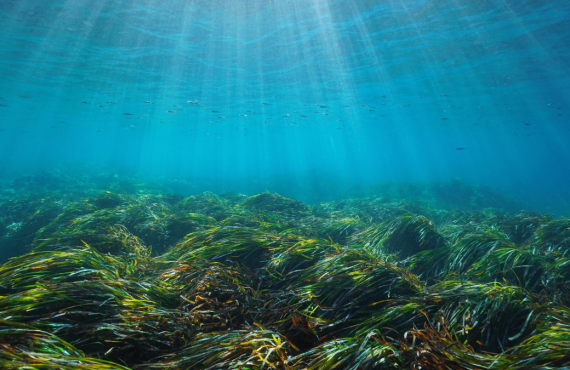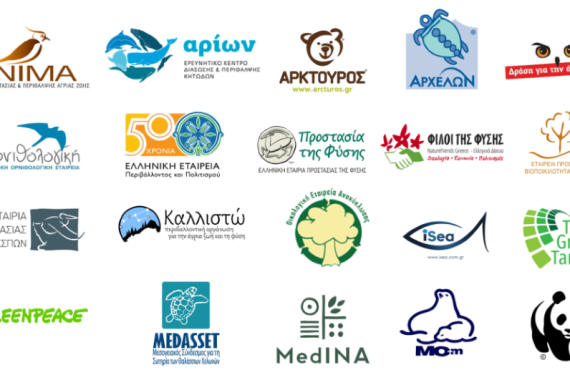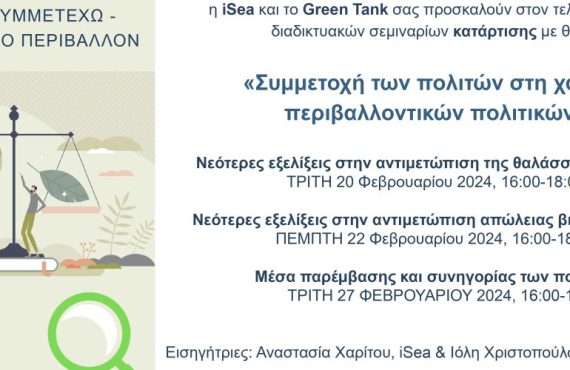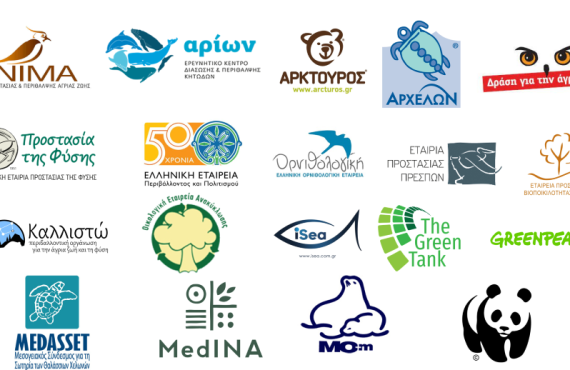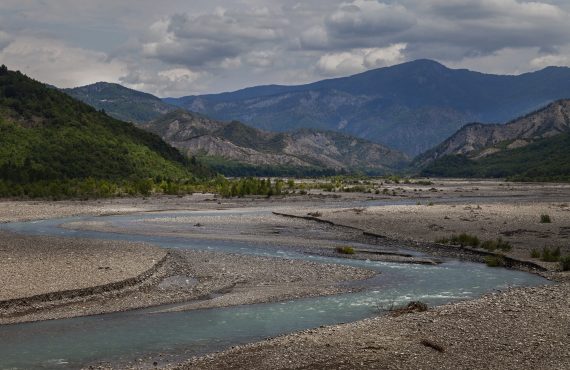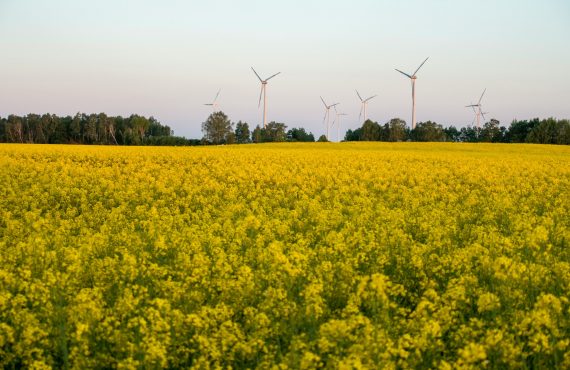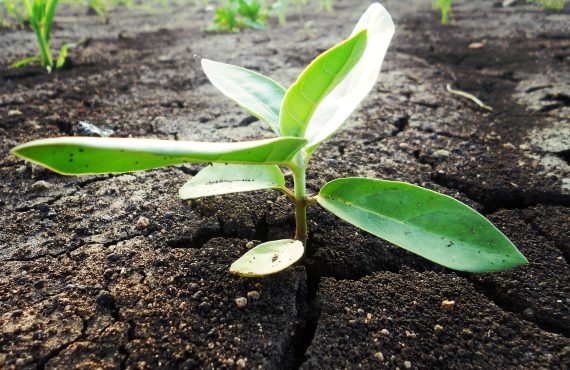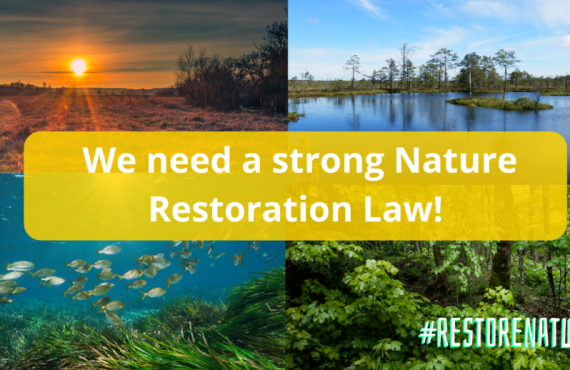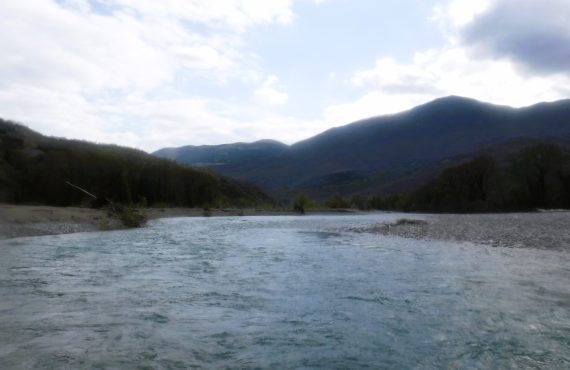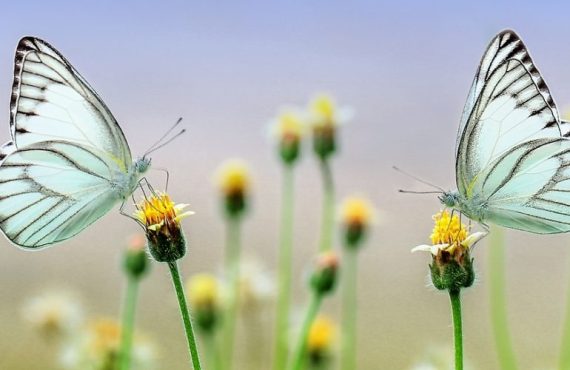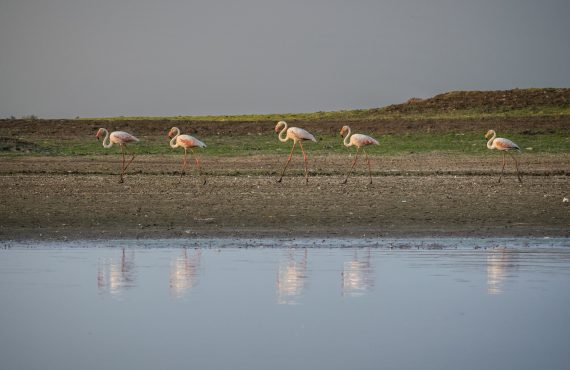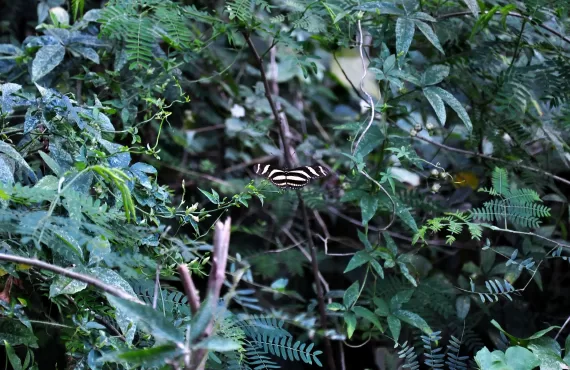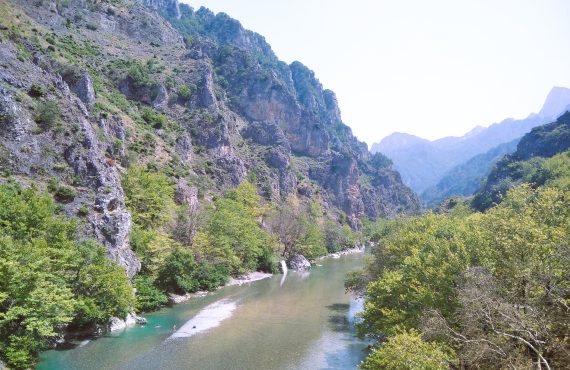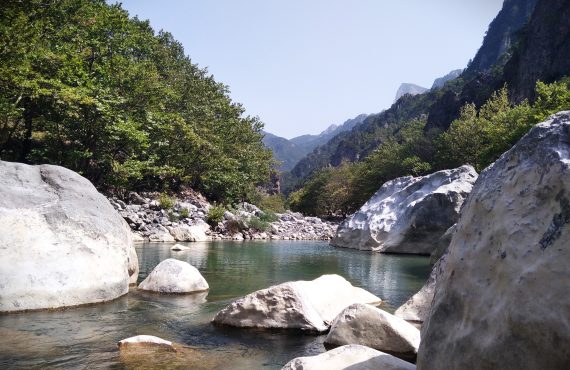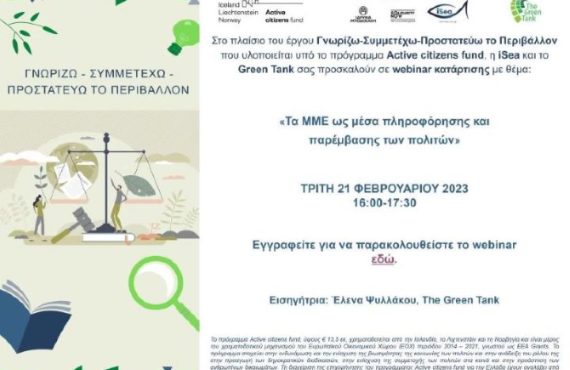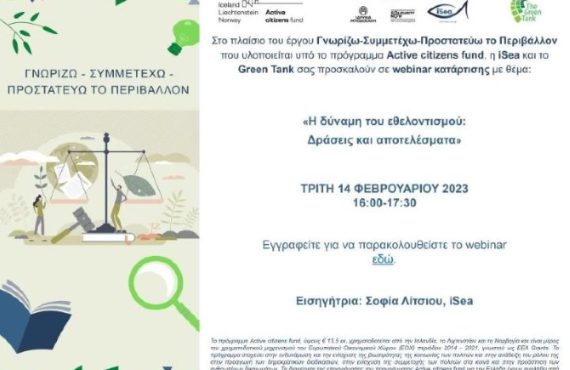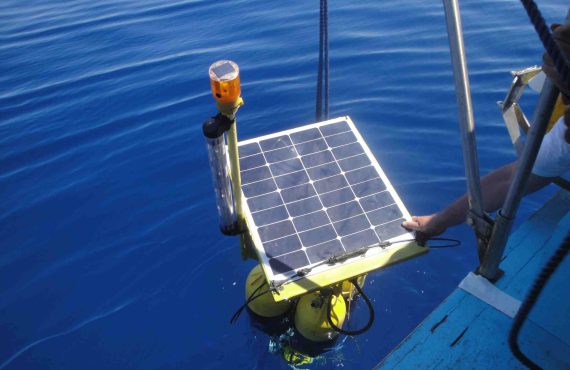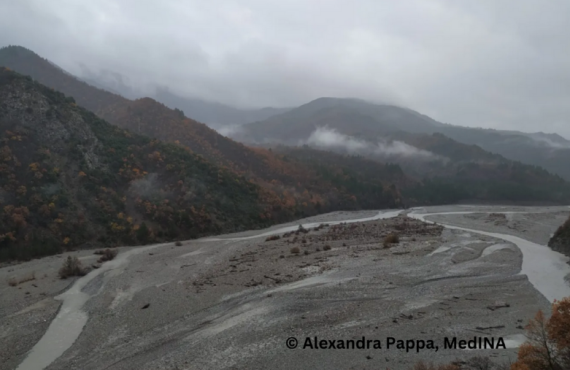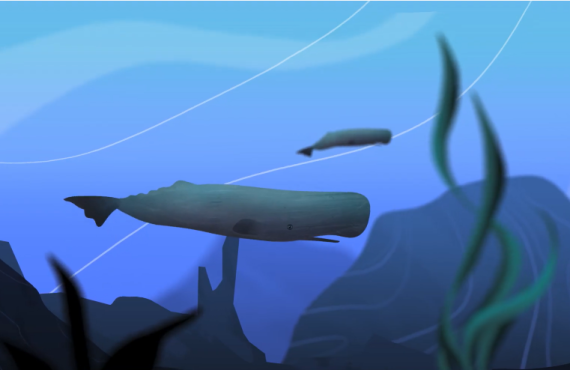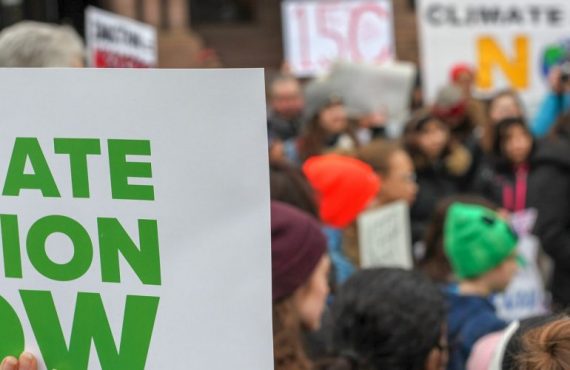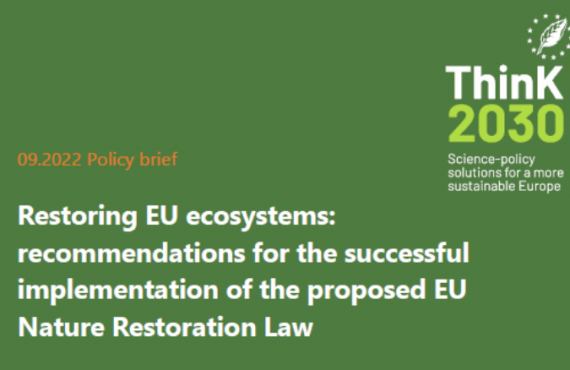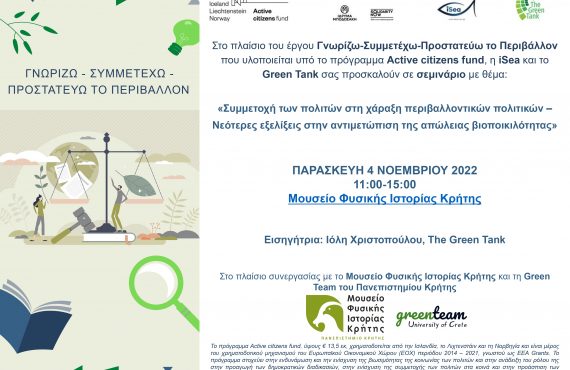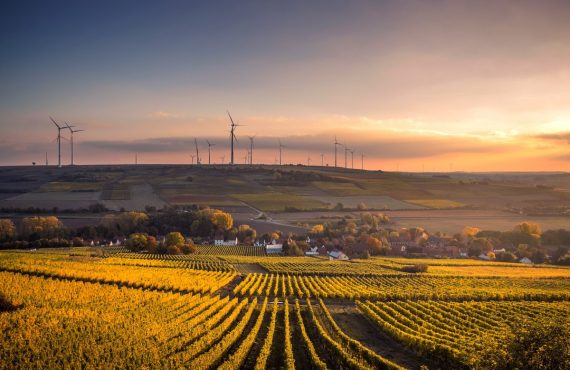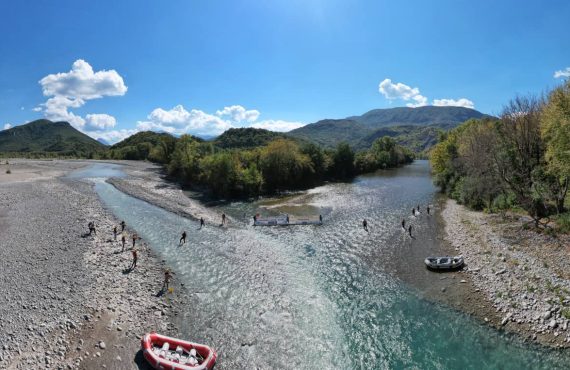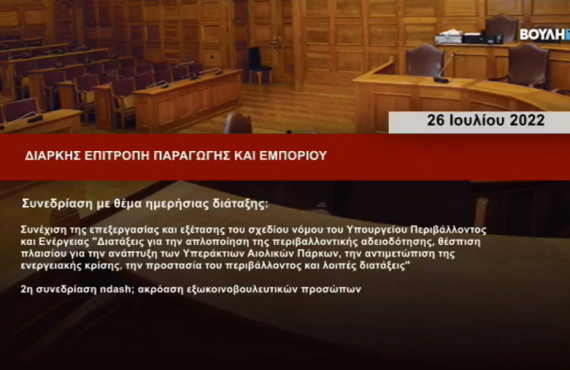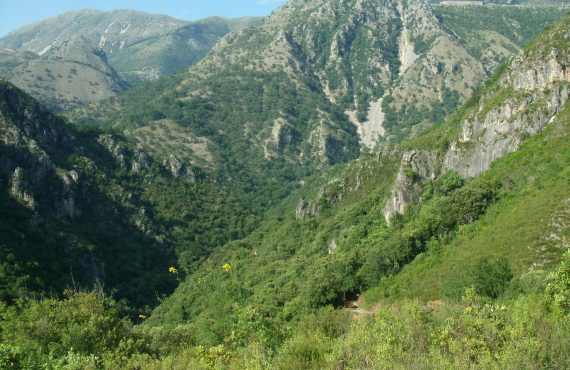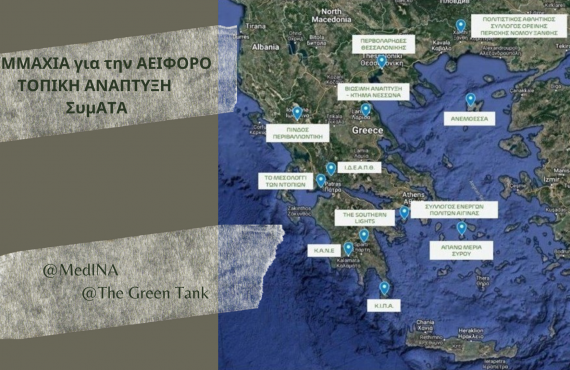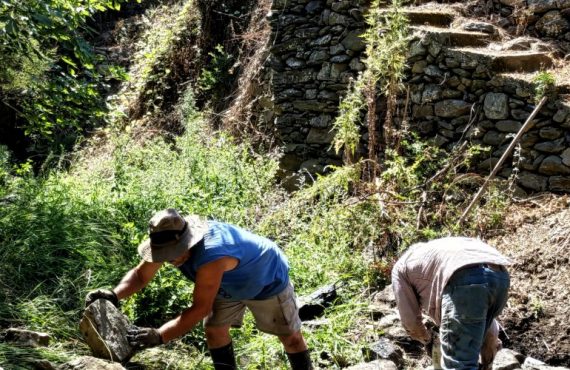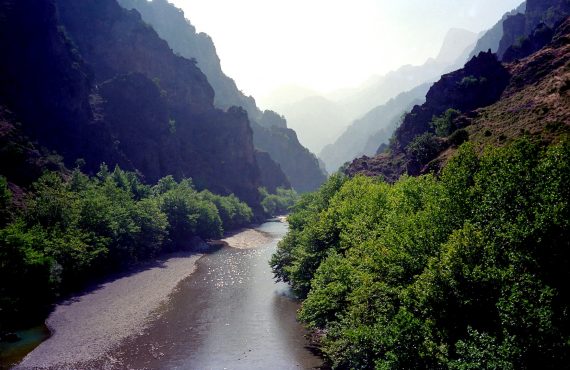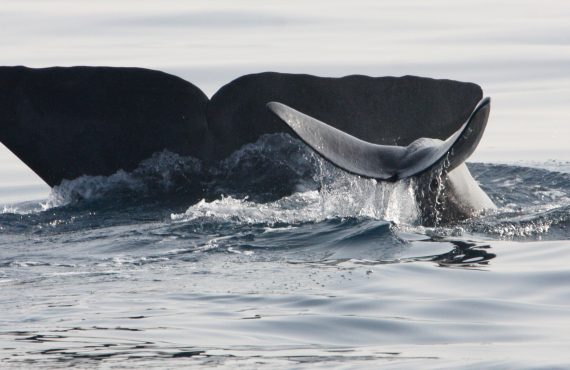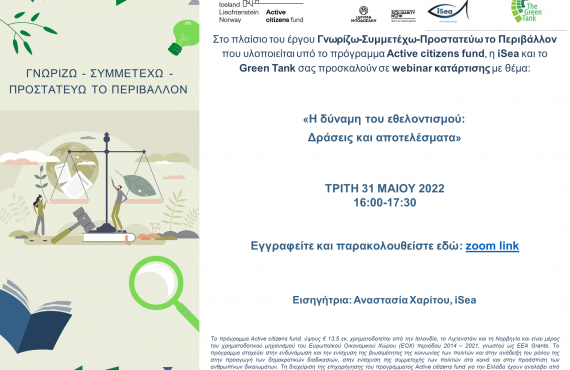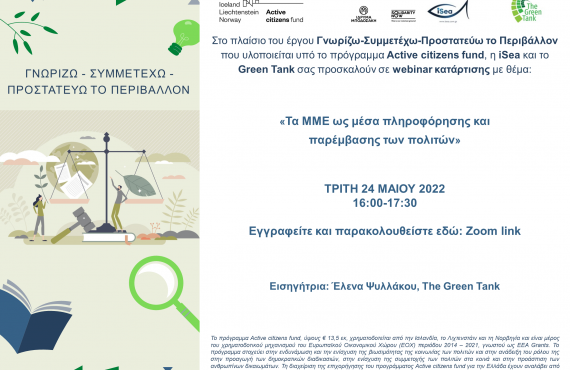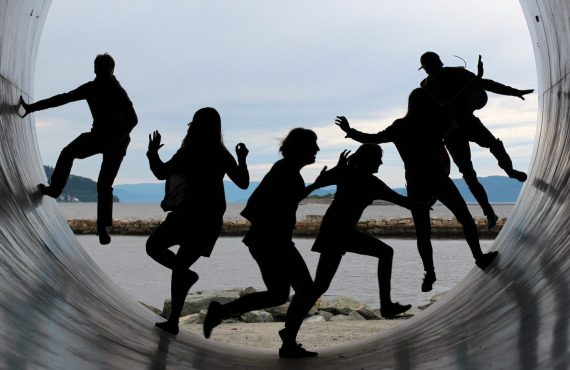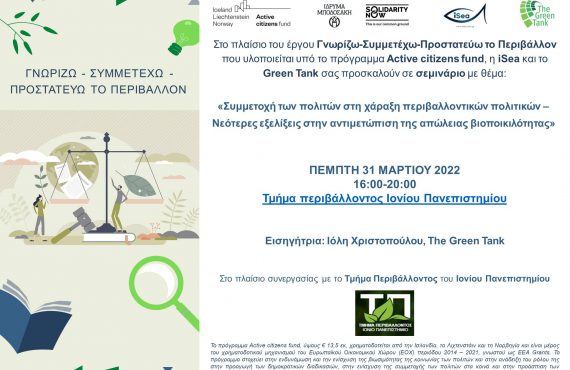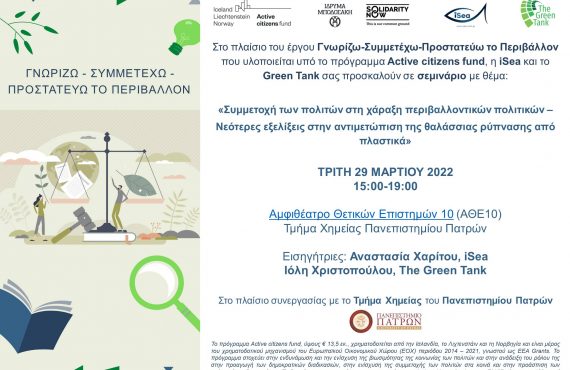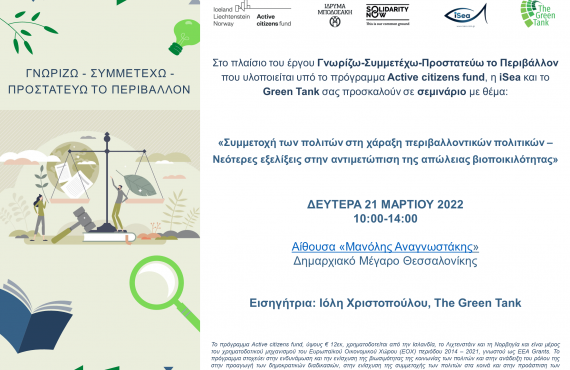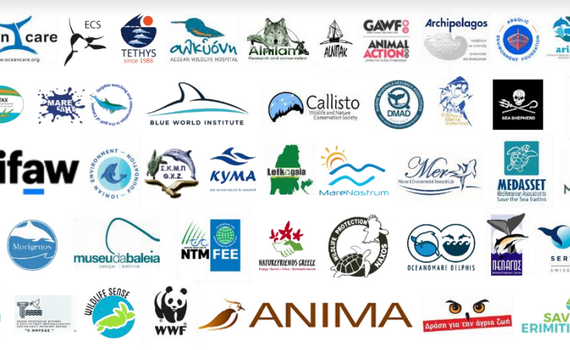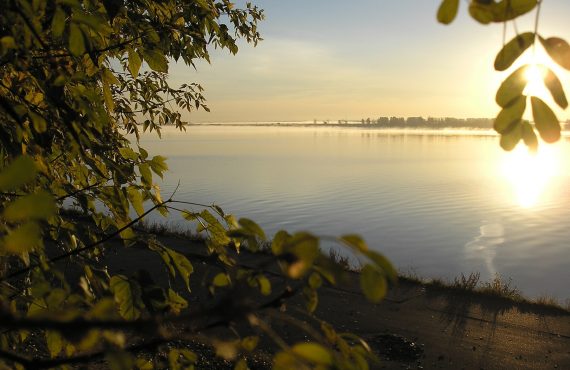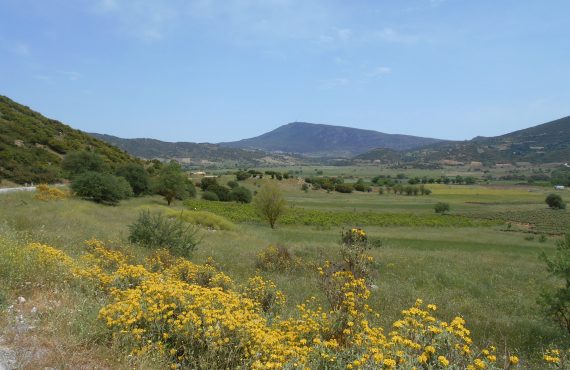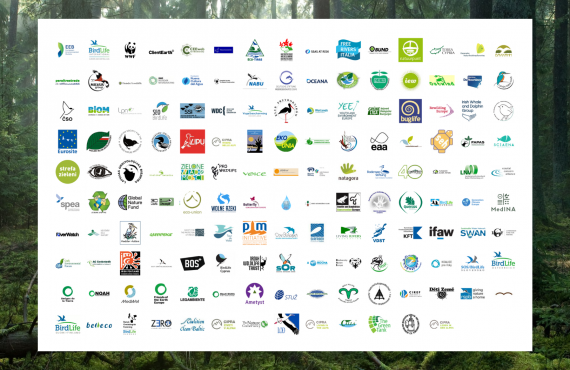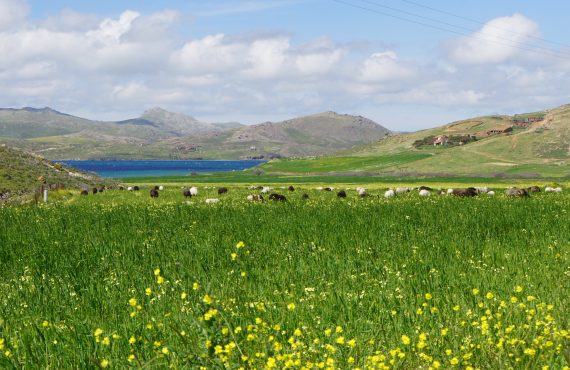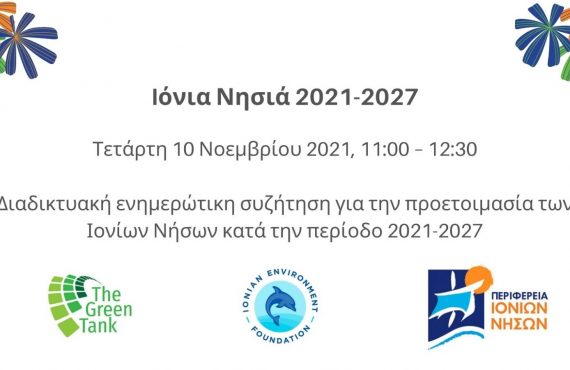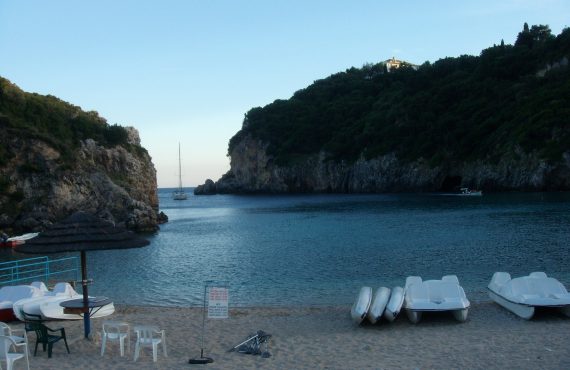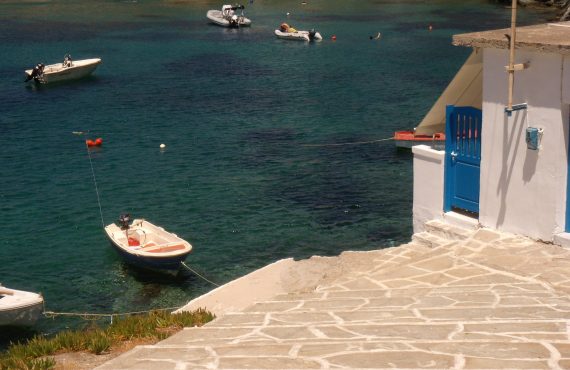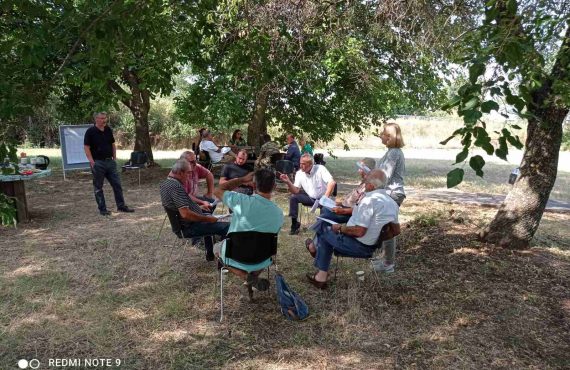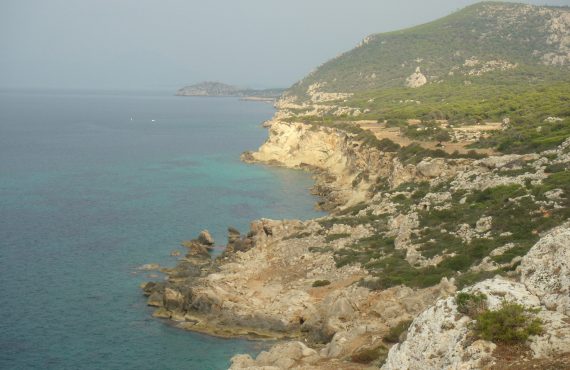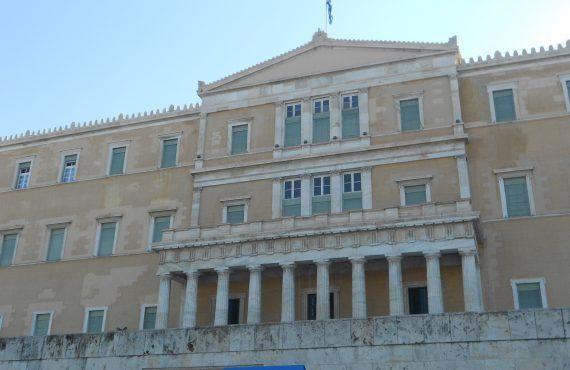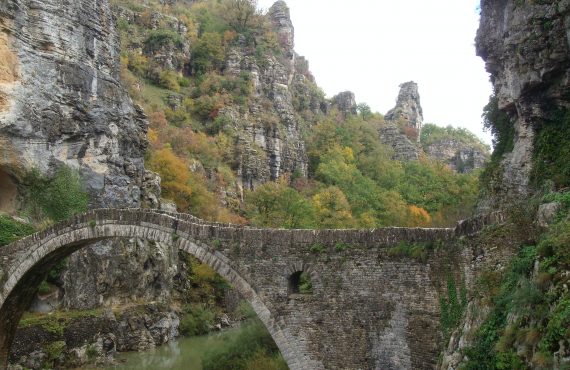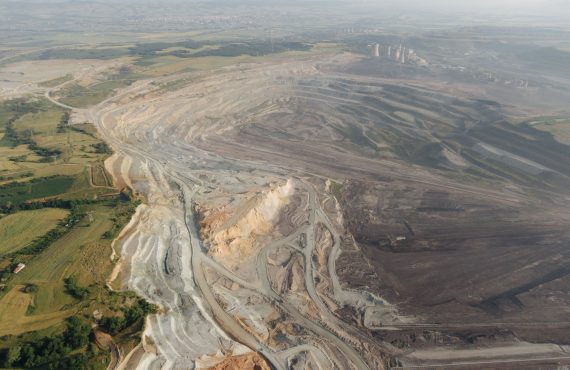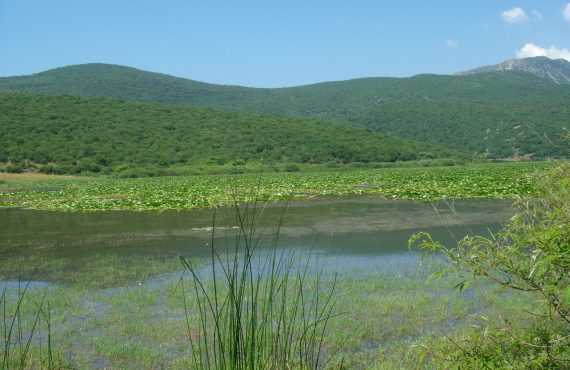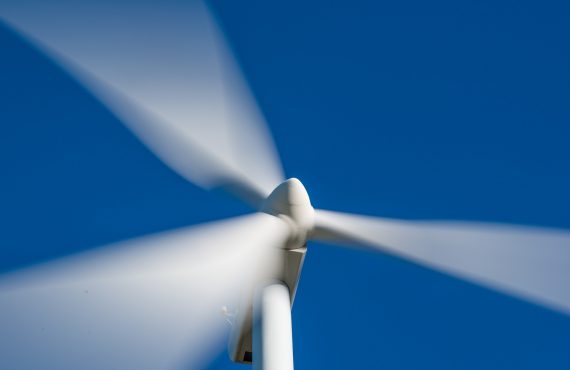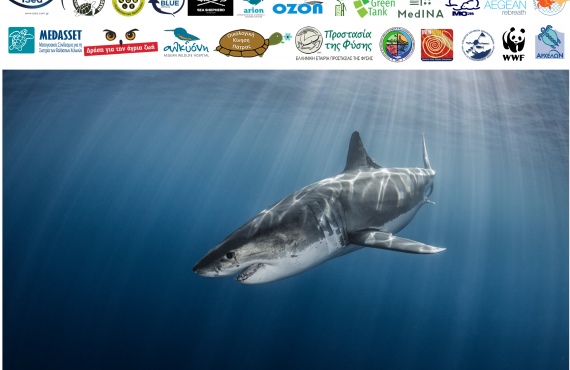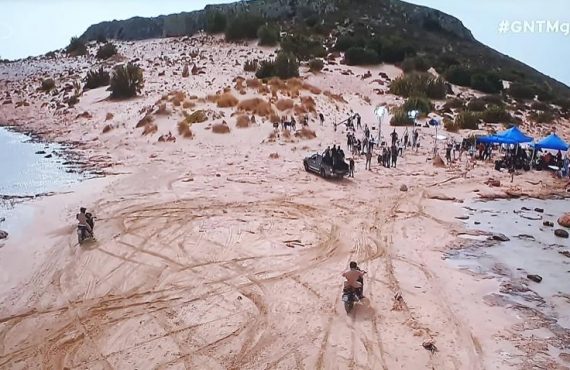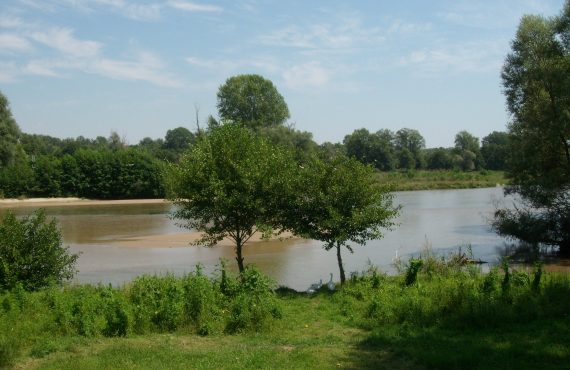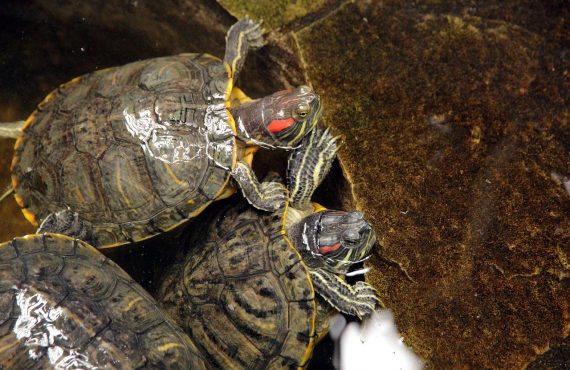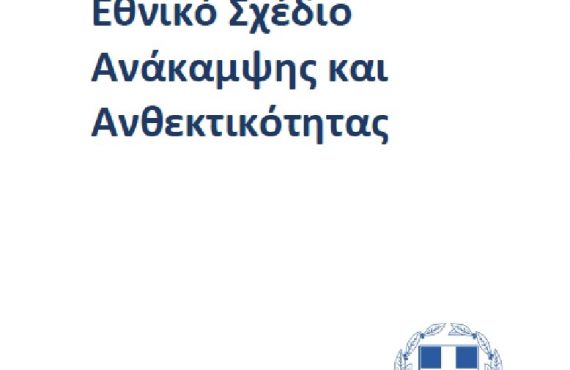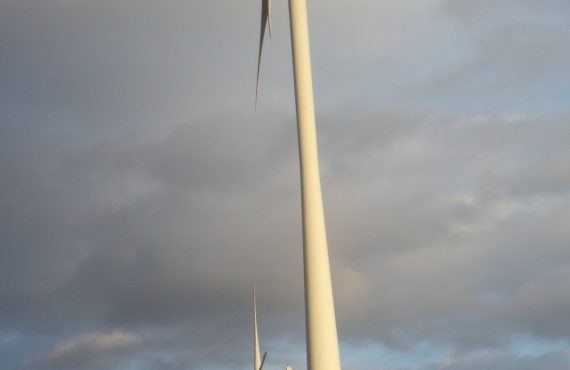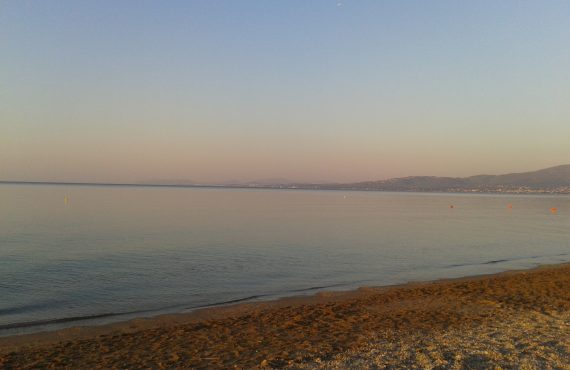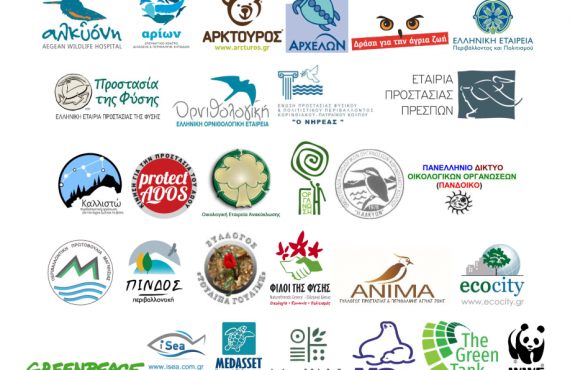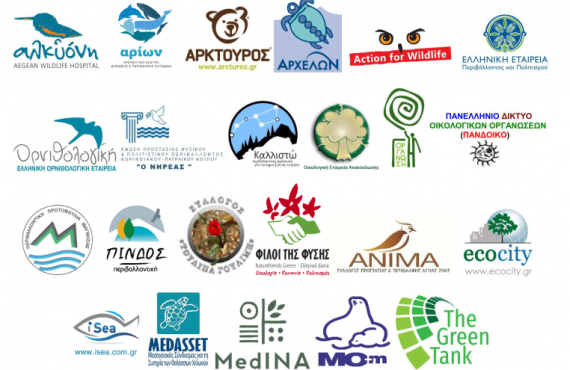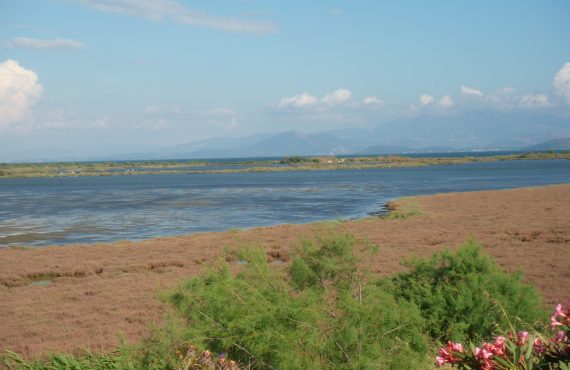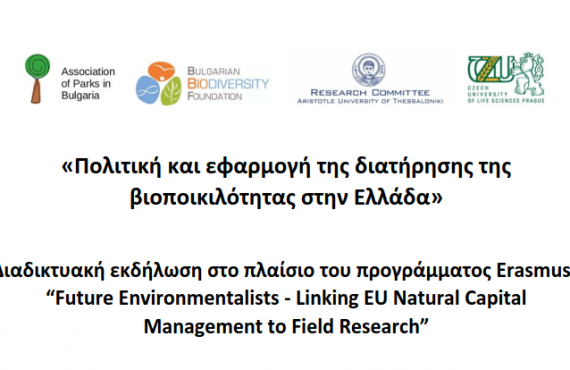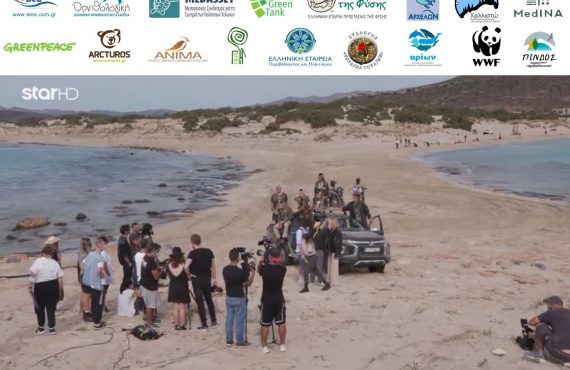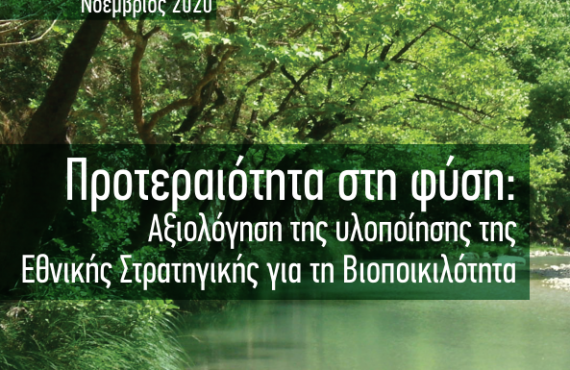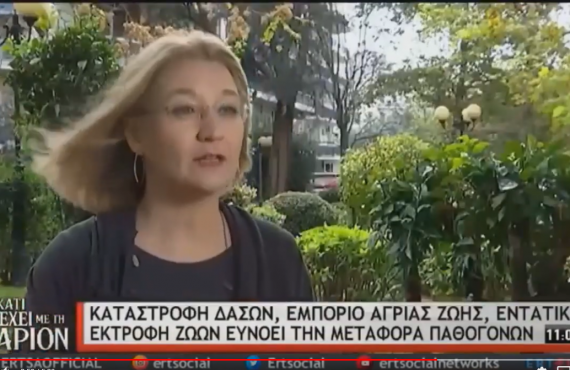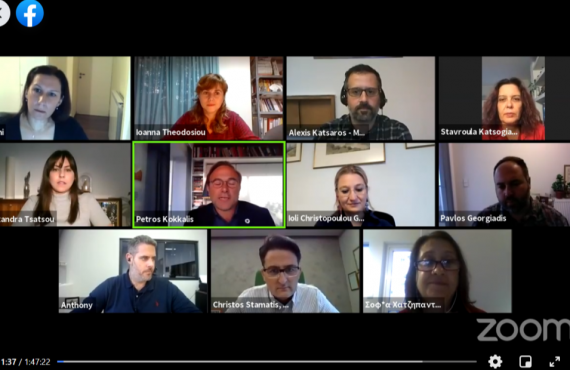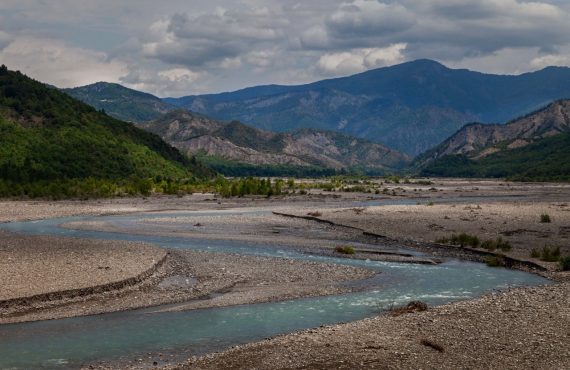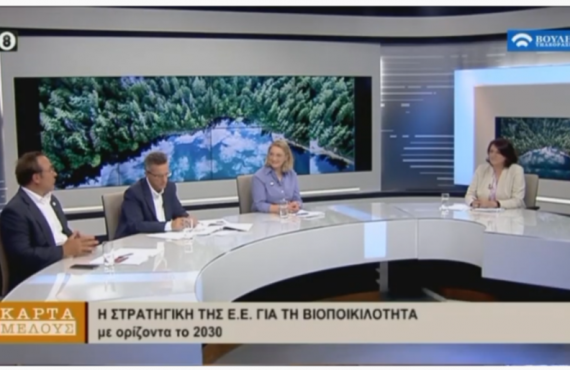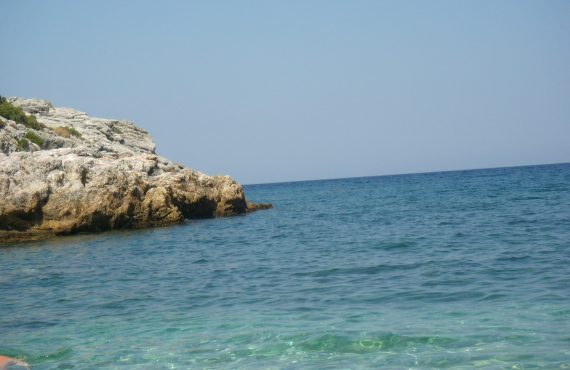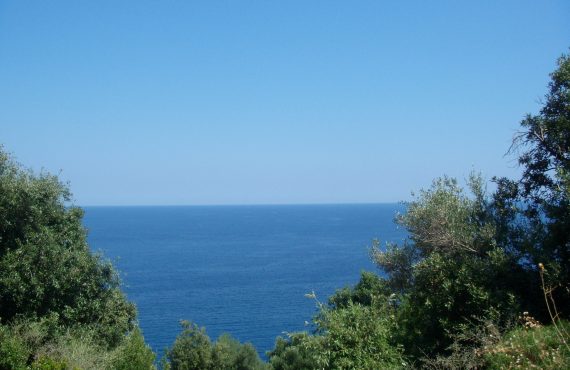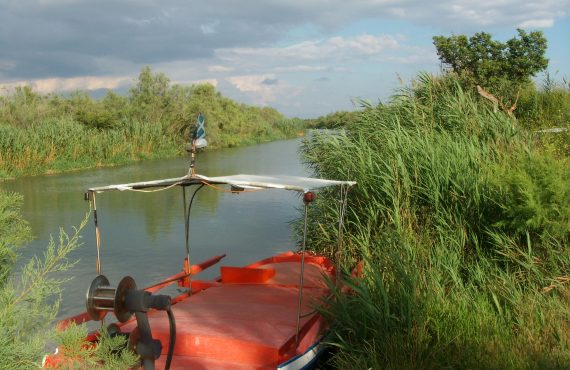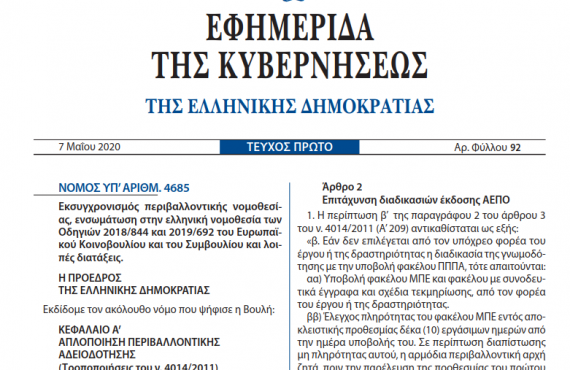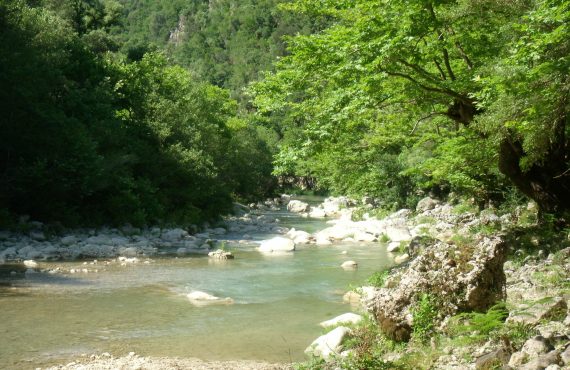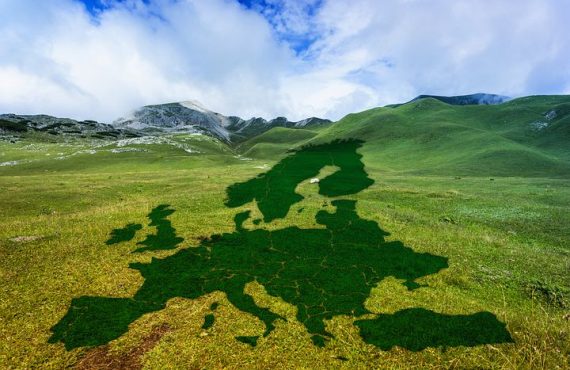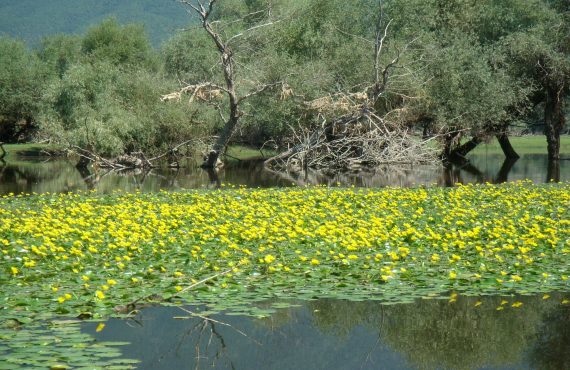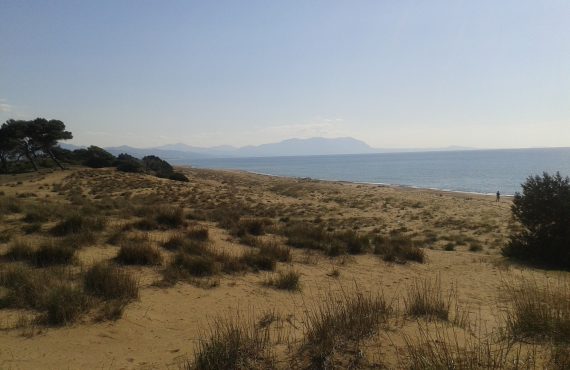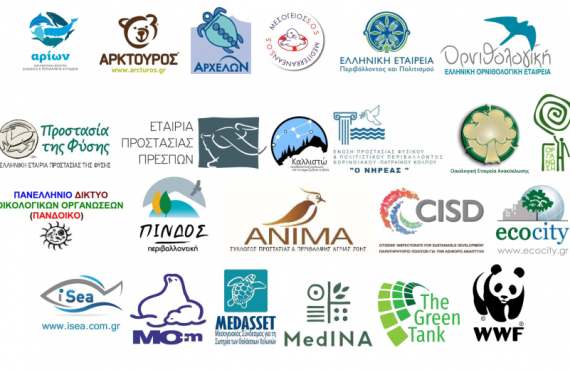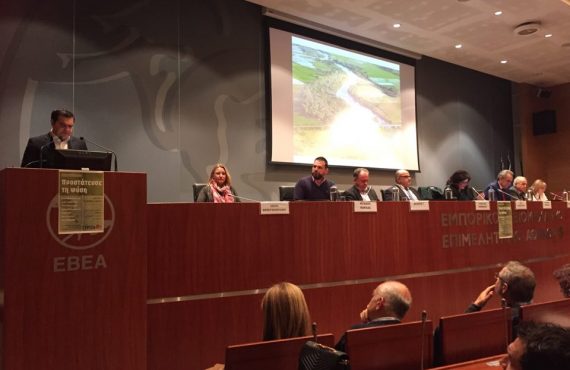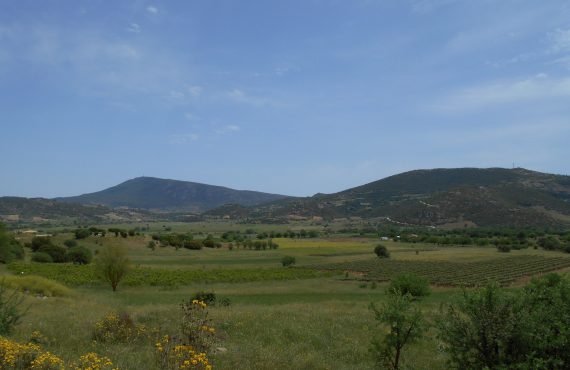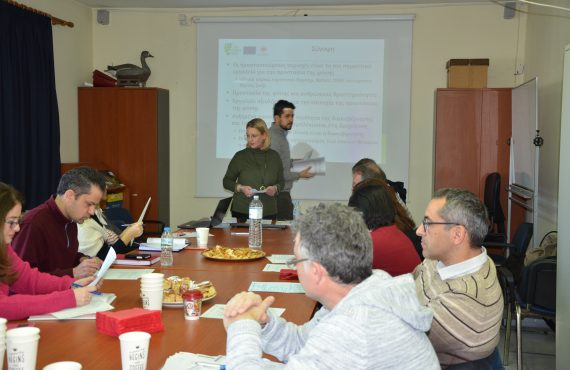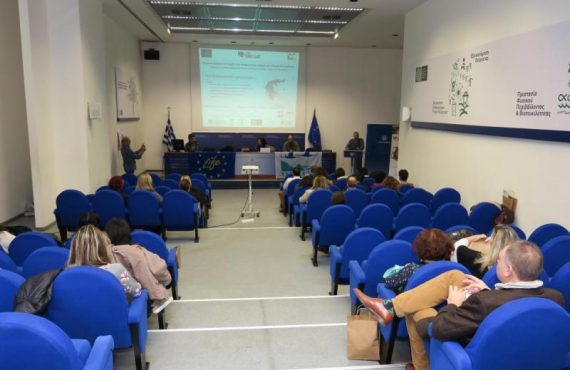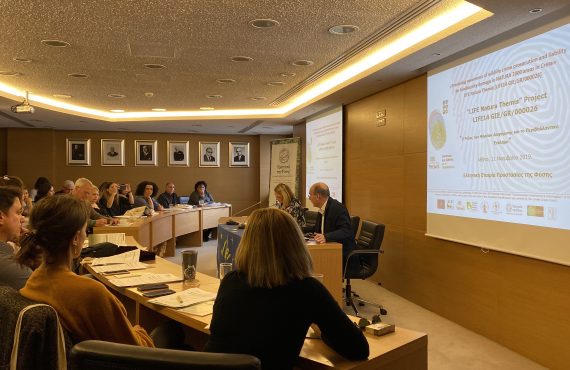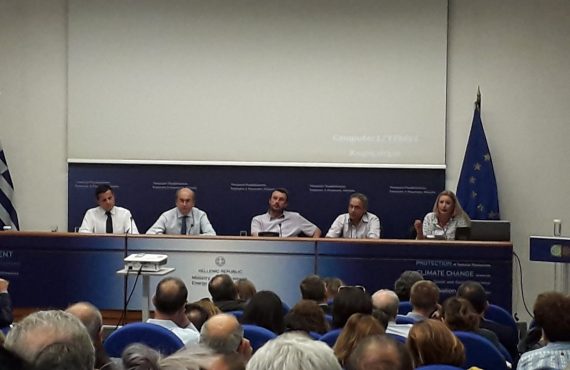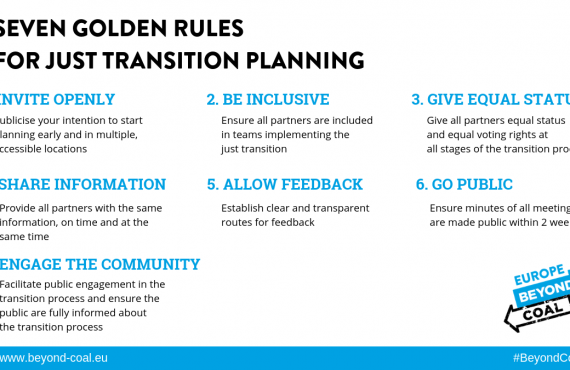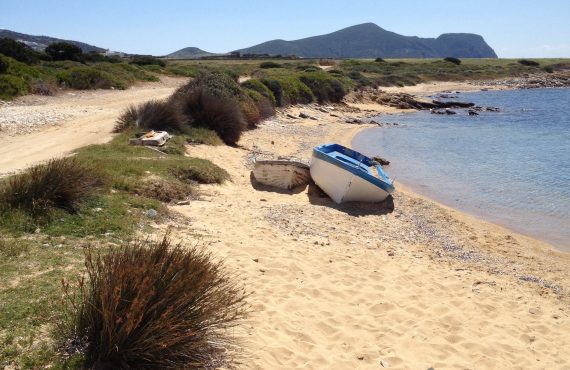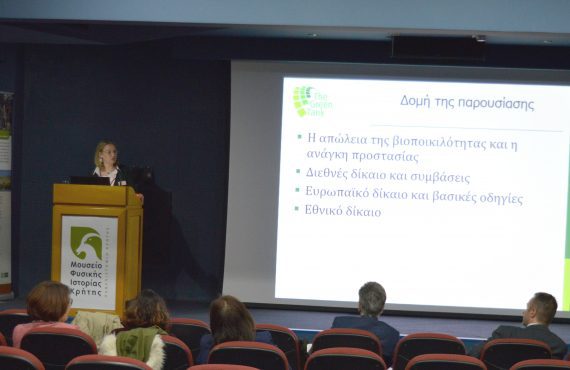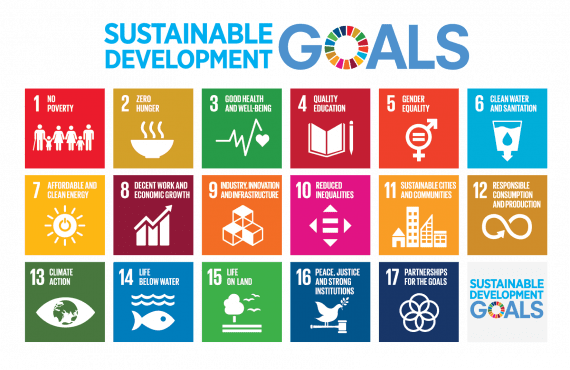Opinion piece by Ioli Christopoulou in which it is explained why the result of the EU elections and the decisions that will be taken in Brussels during the next period will determine whether Europe will contribute to reversing the ecological crisis and ensure the transition to sustainability.
The article titled “Sustainable development central focus of the EU Elections” was published in Greek in capital.gr on May 23, 2019:
Η βιώσιμη ανάπτυξη στο επίκεντρο των ευρωεκλογών
A translation of the article follows:
Sustainable development central focus of European elections
“We will soon enter a decade that will be decisive for both current and future generations and for all life on this planet. It is our responsibility and within our power to make it a decade of action and delivery for sustainable development”. With this message the UN Secretary General in his special progress report on the 2030 Sustainable Development Goals underlines how critical the next years are, as well as how important are the opportunities that these years bring.
The next euro-parliamentary session constitutes the last opportunity that Europe will have to transition to a sustainable society and economy within the limits of the planet.
The planet is at a state of emergency. A few days ago, carbon dioxide concentrations in the atmosphere reached the unprecedented level of 415 ppm, surpassing yet another milestone and showing the ever-worsening climate crisis. At the same time, one in four animal and plant species is driven to extinction and together we risk the benefits of nature.
The scientific conclusions of the UN Intergovernmental Panel on Climate Change are relentless. In order to hold the increase of the average global temperature to 1.5 degrees and avoid the catastrophic effects that a further rise would have, we must achieve a drastic reduction in greenhouse gas emissions by 2030 and reach zero net emissions by 2050. Equally urgent is the warning from the Intergovernmental Science – Policy Platform on Biodiversity and Ecosystem Services. The rate of loss of species will reach unheard of levels if no action is taken to overturn the driving causes that have led to the greatest impact of human activity to the planet over the past 50 years than any other time in history.
More and more European citizens seem to understand the new reality, with the younger generation expressing the starkest agony. The persistence and vision of 16-year-old girl from Sweden leads millions of young children from all over the world to the streets every Friday with the urgent demand to take immediate measures to tackle the climate and the entire ecological crisis.
The climate crisis was included in the debate of the Spitzenkandidaten for the position of the President of the European Commission on May 15th. Despite the undeniable fact that the margins of the planet are narrowing, the aspirating EU leaders have not shown consensus on the path to be followed. The approaches of the political groups to such a top-level issue differ. But what is required by the new term of the European Parliament and the European Commission is a complete overhaul, to adopt policies well beyond business-as-usual. We are no longer talking about preserving Europe’s leading position on environmental and climate issues. It is decisions in the areas of economy, trade, energy, agriculture, fisheries, transport, regional development, and so on, that will ultimately determine whether Europe will reverse the ecological crisis and lead a new development path. The change must begin already on the next day of the elections as the issues on the agenda are many and crucial.
Specifically, MEPs must not only ensure the implementation of its recently adopted Clean Energy Package with its 8 files, but also to remain alert for possible additions needed. Top priority is to ensure that the National Energy and Climate Plans (NECPs) are committed to a carbon free energy mix by 2030 and the long-term climate strategies lead to a climate neutral Europe by 2050. At the same time, they will have to set new targets for halting the biodiversity loss by 2030, which is important since the 2020 targets will not be achieved.
Moreover, they also will need to develop policies that will reverse agriculture intensification, overfishing, and endless infrastructure development, and to strengthen measures to drastically reduce waste, plastics and pollution, while promoting the cyclical economy. A catalyst for achieving the change needed is the direction given to the funds in the new EU budget. In the coming months, MEPs and the Commission must put an end to fossil fuel subsidies and destructive practices and replace them with support for sustainable natural resource management solutions and integrated nature conservation.
For Greece, the challenge will be great. The new MEPs and Commissioners will have to be ready to take difficult decisions as they will need to support the re-start of the economy, while ensuring nature conservation and the transition to a zero-carbon economy. This means a sweeping revision of the NECP towards the direction of a lignite phase-out in 2030 and a redirection of investments from fossil fuels to renewables and energy storage. It also means that in addition to measures that advance the protected areas, the national biodiversity action plan will have to be revised with priority in integrating biodiversity in the primary sector, tourism and infrastructure. The design of the new European co-funded programs will be the most critical factor in order for EU development funds to catalyze the shift of the Greek economy towards sustainability.
European policy influences all aspects of our life. In order to address the state of emergency that scientists have declared for the planet, we need to transform the way we produce, we consume, and ultimately, the way we live. The responsibility of those headed to Brussels after the elections on Sunday is huge. The same is true for our choices at the ballot.



